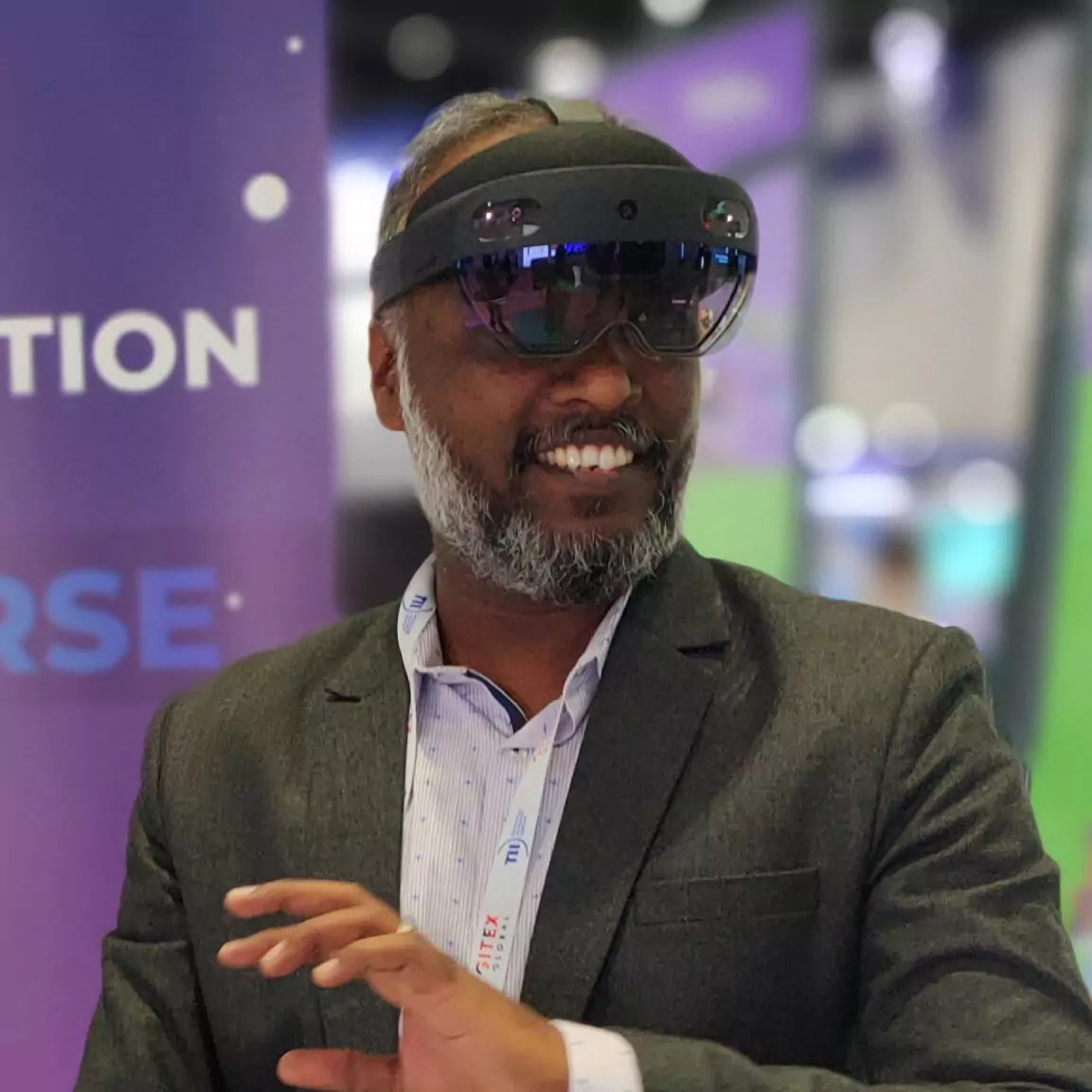Overview
Immersive technologies like Augmented Reality and Virtual Reality are establishing a firm hold over the healthcare industry. This will impact drug development, product demonstration, diagnostics, medical training, marketing campaigns, research, and patient education. AR involves the addition of digital elements to a real-world environment. On the other hand, VR offers a simulated experience for viewers in a 3D environment. Let us take a look at the use cases of AR VR in the Healthcare Industry.

The Boon of AR VR in Advancing Healthcare
Virtual Reality (VR) can play a significant role in drug discovery. This accelerates the process of creating new medicines to treat new diseases. It offers options like import/export of data and 3D arrangement of molecules. Hence, chemists can collaborate efficiently in a scientific environment. They can detect changes in molecular motions.
This helps scientists predict drug reactions while conducting collaborative reviews, allowing them to make informed decisions by visualizing data in 3D.
Virtual Reality in Healthcare industry will speed up drug designing. Modifications can be made at any stage of the production process.
Healthcare enterprises are using Augmented Reality Solutions in their manufacturing facilities. Visual guidance is offered when factory workers learn the nuances of Standard Operating Procedures (SOPs). Augmented Reality mirrors the manufacturing facilities in the healthcare industry.
Augmented Work Instructions can be sent with audio and text. This can integrate with electronic batch records, line clearance, operator training, and electronic logbook maintenance. Eventually, workers can produce high-quality medicines. AR-based instructions ensure the accurate execution of operational procedures.
Medicine manufacturers are utilizing 3D models to display how drugs work. This helps explain the benefits of new medicines easily. Augmented Reality will superimpose imaginary objects over a real-world environment during product demonstration sessions. AR facilitates seamless communication of drug side effects and dietary restrictions. Therefore, brands that use Augmented Reality for medical product visualization will benefit from customer loyalty.
Drug manufacturers can use VR simulations to train workers to use medical devices and equipment. Research teams involved in vaccine production will be trained in lab equipment. Virtual Reality Solutions in the healthcare industry will help create immersive scenarios. Subsequently, equipment, instrumentation, and process training can be held remotely, decreasing accidents and safety violations.
Clinical trials involve significant spending as part of healthcare research. Expenditure is incurred to gather patient insights, train trial coordinators, and create recruitment material for prospective trial participants. Virtual Reality will develop coping strategies for patients. This will help boost enrollment and participant retention. VR will increase the success rates of trials and aid in launching new drugs.
Expressive graphics and 3D imagery will enable patients to understand how their health conditions affect their bodies and how medications act after ingestion. Augmented Reality can enhance patient education and boost trust in medical companies' drugs.
Benefits of AR and VR in Healthcare Industry
- Timely Response to Emergency Situations
As a leading AR VR development company, our immersive solutions enable healthcare unit employees to make the right decisions in high-risk moments. They will have real-time access to life-saving information. A simulated environment is created to expose workers to fire, earthquakes, and armed robbery. They will effectively respond to mission-critical situations by executing the emergency response plan individually or collaboratively.
Similarly, AR maps are layered over Reality. This helps patients quickly discover pharmacies and medical centres. Eventually, doctors can save time during emergency surgeries. Virtual assistance during emergencies will help facilitate seamless collaboration between first-point emergency contacts and surgeons.
- Quick Hazard Identification
Virtual Reality-powered simulators will elevate hygienic practices by providing advanced 3D positioning and navigation. This technology saves both energy and time, allowing workers to develop situational awareness and visual object recognition skills in a simulated environment.
Augmented Reality ensures the superimposition of virtual images onto real objects. This is more effective than classroom training. While accidents and injuries occur due to unsafe working conditions, identifying hazardous situations will enhance health and safety training.
- Effective Equipment Maintenance
Immersive training simulators will help workers to perform maintenance operations remotely. 3D teleportation and digital meetings will offer a hands-on experience while repairing sensitive machinery.
Thus, employees will choose the correct spares and parts while following the instructions in standard maintenance procedures. This is applicable while workers handle mixing vessels, lubricant handling systems, boilers, filling machines, spray dryers, and heating, ventilation, and air conditioning systems. Hence, employees can safely execute predictive, preventive, emergency, and corrective maintenance.
Final Thoughts
Though still in its infancy, AR VR in the healthcare industry can significantly impact the healthcare sector. In addition to research, development, and marketing, immersive technologies can educate physicians and patients. Augmented Reality in Healthcare improves the accuracy of operational processes, reduces manual errors, and promotes effective collaboration among employees, leading to informed decision-making.
Do you have an exciting project in mind? Contact Novac Immerz now and get your immersive technology strategy underway.

S F Shanavaz

Having ignited minds in the golden age of eLearning transformed myself into a forerunner in the Metaverse's uncharted territory. From the democratizing power of eLearning to the boundless frontiers of the Metaverse, I have donned many hats – inspiring trainer, a meticulous designer, a savvy marketer, and an ingenious builder. Not long ago, with a developer's spirit, introduced and brought AR/VR business (Immerz) to life at Novac. Now, I lead a team of innovators, wielding the magic of Augmented and Virtual Reality to craft solutions that not only solve business challenges but redefine the very fabric of how we interact with the virtual worlds.






